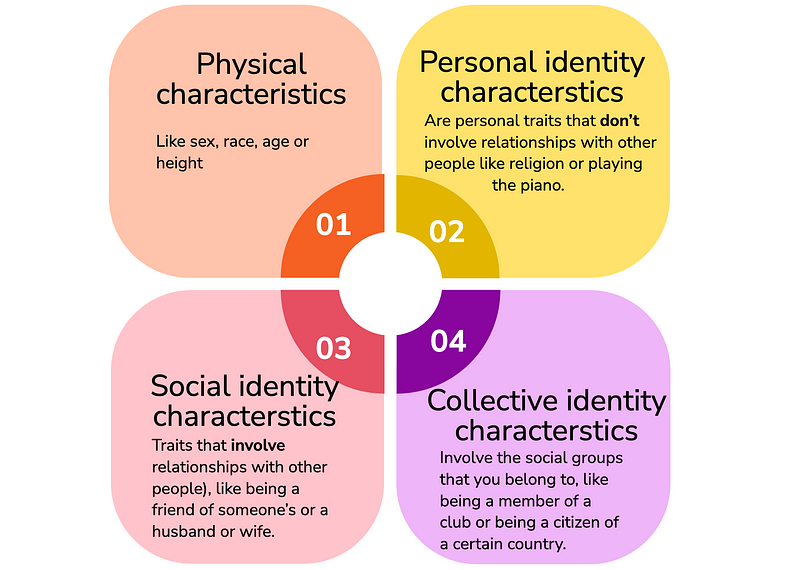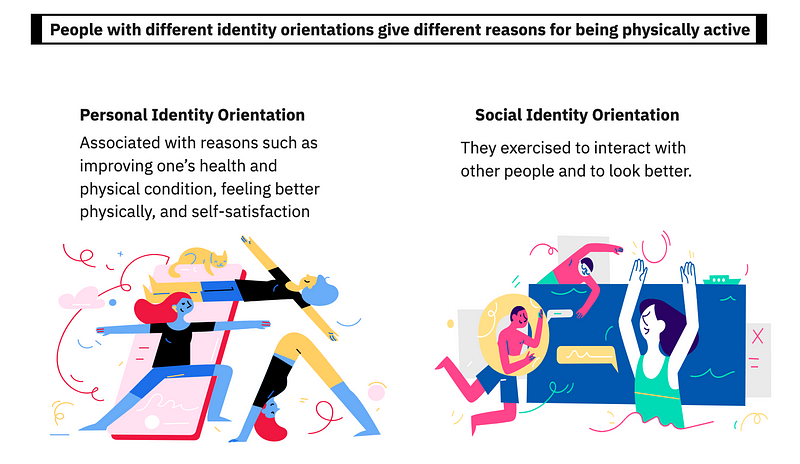Understanding Self-Related Beliefs for a Better Life
Written on
Chapter 1: Exploring Self-Related Beliefs
In our journey of self-discovery, we encounter four distinct types of self-related beliefs:
- Identity: This pertains to how individuals perceive themselves.
- Self-Confidence/Efficacy: This reflects beliefs regarding one’s capabilities.
- Self-Esteem: This is about how people assess their own worth.
- Self-Compassion: This involves the kindness one shows to oneself during challenging times.
Understanding these beliefs is crucial as they can significantly impact various aspects of life. By becoming aware of your self-related beliefs, you can alter your internal dialogue and, consequently, enhance your life.
Identity (Who Do You Think You Are?)
When asked to describe yourself, the majority of your response will likely align with one of the aforementioned categories.

Each identity encompasses traits from all four categories, but the emphasis on specific traits varies among individuals. Whether you identify more with personal attributes—like your ambitions and skills—or social factors, such as your relationships, shapes your identity significantly.
Research indicates that self-identification influences your motivations for maintaining physical activity. For instance, individuals with a personal identity focus often cite health improvement and personal satisfaction as their primary reasons for exercising. Conversely, those with a social identity focus might exercise primarily for social interaction or appearance enhancement.

Self-Confidence (Self-Efficacy)
To evaluate your self-confidence, consider whether you believe you can tackle difficult challenges. A belief in your problem-solving abilities typically indicates higher self-confidence. Conversely, if you feel defeated by complex issues, this may signal lower self-confidence.
Typically, individuals display varying levels of self-confidence across different domains. High self-confidence is vital as it drives you to engage in activities you believe you can accomplish. Research suggests that those with elevated self-confidence tend to be more optimistic, less anxious, and less prone to depression. They also embrace challenges more readily and persist longer when faced with obstacles.
Self-Esteem
Self-esteem reflects your overall self-image, which can fluctuate based on life experiences. It is shaped by how valued and accepted you feel by others, rather than their actual perceptions of you.
Higher self-esteem is linked to improved performance across various life domains, including academics and relationships. Individuals with elevated self-esteem often experience greater happiness and lower levels of negative emotions, including anxiety and loneliness.
Self-Compassion
How do you treat yourself in difficult times? The spectrum of self-compassion ranges from harsh self-criticism to a gentler, more forgiving approach to personal failures.
Many individuals are excessively critical of themselves, which can lead to significant emotional distress. In contrast, those who practice self-compassion tend to accept their imperfections and treat themselves with kindness, which promotes emotional stability and optimism.
Consider how you would comfort a friend who faced failure. Most would offer reassurance and understanding, yet many struggle to extend the same compassion to themselves. Cultivating self-compassion can lead to greater psychological well-being and resilience in facing life’s challenges.
The Epitome of Self-Related Beliefs
The way you treat and talk to yourself directly influences your life experience. By nurturing a supportive internal dialogue, you pave the way for a more fulfilling existence.
Chapter 2: The Impact of Self-Related Beliefs
Explore the four types of self-awareness and their transformative potential in this insightful video.
Join Eckhart Tolle as he discusses the importance of trusting yourself and building confidence.